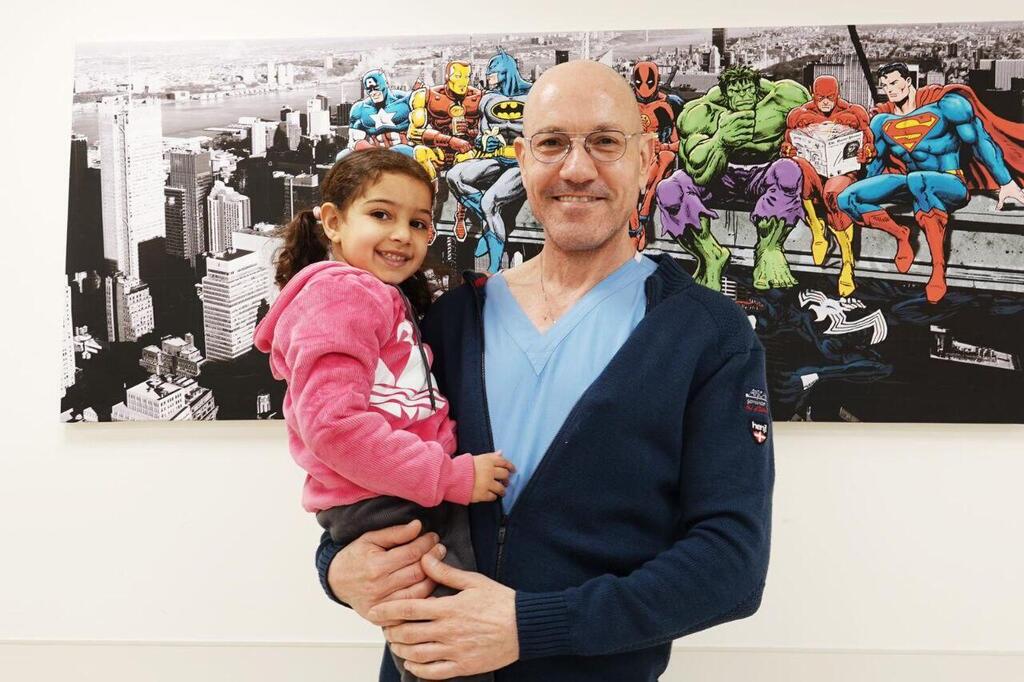Getting your Trinity Audio player ready...
Ayla Hussain, a four-year-old from the Arab city of Qalqilya, suffered from a stroke at a very young age, a rare occurrence in children. She was one of only one and a half million cases. Over the course of a year, she experienced symptoms such as fainting, paralysis, and kidney failure. However, doctors in her hometown were unable to diagnose the exact cause of her symptoms and did not provide any helpful treatment until her father, Muhammad, took her to Shaare Zedek Hospital in Jerusalem.
According to Dr. Jacob Amsalem, the director of the interventional neuroradiology unit at the hospital, Ayla likely experienced a severe cerebral hemorrhage in the left hemisphere of her brain and repeated episodes of stroke about a year before arriving at the hospital. During this period, she was diagnosed with a cerebral aneurysm and partially treated with coils and a dense metallic stent. Despite the treatment, she continued to suffer from additional brain events, causing her to stop speaking and become paralyzed on the right side of her body.
Dr. Amsalem said that there were two options for treating Ayla's condition. The first option was to perform a bypass, which carried many risks. The second option was a complex cerebral catheterization that required a lot of experience in treating tiny arteries that could rupture.
"Very rare phenomenon in children"
It was decided to proceed with cerebral catheterization, which involved the use of a special balloon and material to close the aneurysm. Fortunately, the bleeding stopped completely, and within a few hours, Ayla's condition began to improve. Working together with hematologists, they made an exact adjustment to the dosage of medication suitable for her weight and age.
According to Dr. Amsalem, a stroke is a very rare phenomenon in children, and a recurrent stroke is an even rarer phenomenon. "This is a rare case, with an incidence of one in half a million children. We are glad we avoided irreversible damage. Caring for children requires special attention and adaptation to the tiny arteries while taking into account the future growth of the various organs," he said.
Ayla was discharged from the hospital and returned to her active lifestyle just days after the operation. "We never expected something like this to happen to our healthy, active daughter," her father said. "After nearly a year of uncertainty and fear, Shaare Zedek Hospital saved her life and gave us back our precious little girl."


